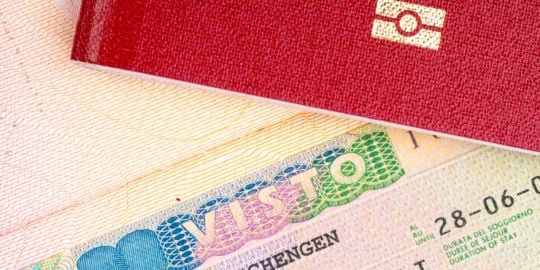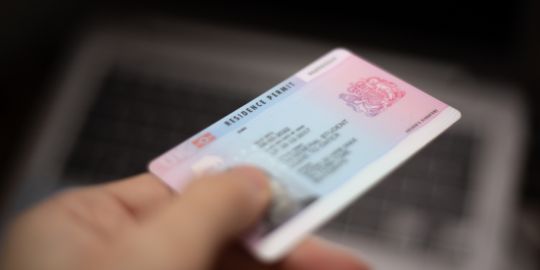Defining artist visas
What is the difference between an artist visa and a standard work visa? There are, in fact, several types of work visas (teacher, researcher, journalist, investor, etc.). There are also specific visas for diplomats, sportspeople, and artists.
Professionals who provide their services or artistic works against client payments are eligible for an artistvisa. Although they do not have an employment contract, they can benefit from social protection intended for workers under the artist visa.
It's worth noting that artists are not always self-employed. This is especially true for foreigners working under an employment contract that clearly states their professional activity. The company will also need to be able to justify their employment through a license, such as an entertainment contractor's license.
Artist visas are available in several countries, namely France, Belgium, the United Kingdom, Canada, the United States, South Korea, and the United Arab Emirates. However, the specificities of the visa may vary from country to country.
Why should you apply for an artist visa?
An artist visa protects you as an expat. An agreement between a concert organizer and a musician performing on one or more evenings doesn't necessarily mean they have a subordination relationship. The organizer, who is the client, has the power to specify what he expects of the artist, but without the authority of an employer.
On the other hand, artists are free to suggest and defend their work. They decide how to organize their time and activities as they wish and propose their own compensation. Although there is no employment contract, the artist visa allows the musician to be affiliated with the social security system for employees and claim other rights (unemployment, for example, based on the country's laws).
What are the options for artists moving abroad without a special visa?
While prominent artists find it easier to perform abroad, smaller ones still struggle. Although the artist visa is not available in all countries, other visas allow you to perform abroad. As always, it's important to learn about the country where you want to perform and its professional activity.
Other visas for performing abroad
Artists who wish to perform abroad in Europe can opt for the Schengen visa. Although the Schengen visa is commonly referred to as a tourist visa, it can also be used for business trips or short-term employment. This visa allows you to stay in the Schengen area for a maximum of 90 days every 6 months.
Artists may be eligible for both short-term and long-term work visas. However, it's important to distinguish here between artists employed by a company and those self-employed. The route taken by artists on employment contracts is identical to that of expatriates on work visas. Self-employed artists are required to gather evidence of their activities, which include the company's legal status, certificates, attestations, turnover, and proof of income.
Remember that each country is free to define the scope of a particular visa. Artistic professions may be governed by specific laws. For example, Austrian law authorizes certain categories of foreign artists (acrobats, musicians, TV artists, etc.) under contracts lasting from one day to 4 weeks to perform in concerts, films, performances, TV programs, etc., without a work permit. It is the employer's responsibility to provide written proof to the Austrian Public Employment Services (PES) of the dates of the artist's assignment. The foreign artist will travel to Austria on a Schengen visa.
Obstacles to obtaining artist visas
Artist visas are lesser known than other visas (student visas, work visas, etc.) but are work visas as the artist engages in a professional activity. Artist visas, even those issued by the government, are not always easy to obtain. Bureaucracy can be long and tedious. For this reason, Japan has lowered the requirements for artist visas in order to welcome more artists, especially the modest ones who are struggling.
Geopolitical conflicts and visa refusals
Sometimes, only one step from the artist's scene to geopolitics. In fact, artists from Niger, Mali and Burkina Faso were allegedly denied artist visas by France in September 2023. Three countries have experienced military junta and have severed their relations with France. Artists from the countries concerned are bearing the cost of these geopolitical conflicts. Organizers of state-funded cultural events reportedly received a letter from the Direction régionale des affaires culturelles françaises, ordering them to stop inviting artists from these countries. This measure is in response to the French's government official security-related suspension of visas to citizens of Niger, Mali and Burkina Faso on August 7, 2023. However, the Ministry of Foreign Affairs retorted that artists who had obtained a visa before August 7 would not be affected, asserting that they did not encourage any deprogramming of foreign artists.
Are some nationalities more affected than others by visa rejections?
This is not the first time that France has been singled out. The media has reported numerous instances of artists being turned away at the border. Malian artist Mariam Diarra had her visa application rejected by France in 2015 on the grounds that "she lacked the will to leave the Schengen area when the visa expires". France initially denied the visas of the Jouk Attamtil Al Bidaoui theatre company in September 2022 but then granted them the visas at the last minute. Tunisian filmmaker Wafa Lazhari had her visa application refused earlier in June. She was due to represent her film at the Annecy festival.
These refusals also affect other countries, such as the Netherlands. Artists and programmers criticize arbitrary assessments by consulates, which demand a succession of supporting documents at any time. Artists spend more time sorting out visa problems than working on their tasks. Problems that include cost: the price of the visa, the plane ticket, and the time spent providing the necessary supporting documents. It's a waste of time and money for artists who do not hesitate to voice out discrimination. Overall, African artists are more likely to have their visas refused in France.
Useful links:
France : passeport talent – profession artistique et culturelle
Canada : professions artistiques et arts de la scène
South Korea : culture and entertainment visa
Dubaï : creative talented accreditation (cultural visa)
United Kingdom : global talent visa
















